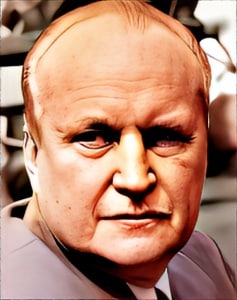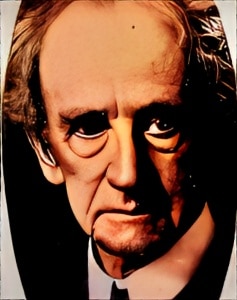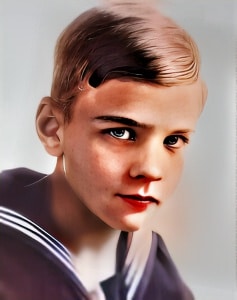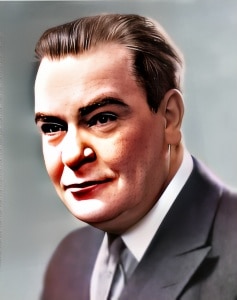 George Waggner (1894-1984) was an American director, screenwriter, and actor who made significant contributions to the film and television industry during the mid-20th century.
George Waggner (1894-1984) was an American director, screenwriter, and actor who made significant contributions to the film and television industry during the mid-20th century.
Born on September 7, 1894, in New York City, Waggner played a crucial role in the development of classic Hollywood horror films and had a diverse and enduring career in the entertainment business.
Waggner initially started his career as an actor, appearing in silent films during the 1910s and early 1920s. His experience as an actor allowed him to gain insights into the craft and the workings of the film industry. As the silent era transitioned into the talkies, Waggner expanded his involvement in the industry, taking on screenwriting and directing roles.
One of his most notable early directorial efforts was “The Wolf Man” (1941), a classic Universal horror film. Starring Lon Chaney Jr. in the titular role, the movie became an iconic entry in the Universal Monsters franchise and established the werewolf legend as a staple in horror cinema. Waggner’s direction contributed to the film’s atmospheric and moody tone, making it a beloved classic among horror enthusiasts.
Waggner continued his work in the horror genre with “Horror Island” (1941) and “Man-Made Monster” (1941), further solidifying his reputation as a director of horror and suspense. He was known for his ability to create tension and thrills on screen, and his contributions were instrumental in shaping the horror genre during this era.
In addition to his horror films, George Waggner worked on a range of other genres, from Westerns to crime dramas. His versatility as a director and his ability to adapt to various film styles allowed him to navigate the ever-changing landscape of the film industry.
During the early years of television, Waggner transitioned to working in the new medium. He directed numerous episodes of popular TV shows, including “Lassie” and “The Lone Ranger.” His television work demonstrated his adaptability as a director and his ability to excel in different formats.
Waggner’s career continued into the 1950s and 1960s with projects like “The House of the Seven Hawks” (1959) and “Operation Bikini” (1963). While his later work may not have achieved the same level of recognition as his earlier films, his contributions to the entertainment industry remained significant.
George Waggner’s career was marked by adaptability and a willingness to embrace new challenges in the rapidly evolving film and television industries. He had a lasting impact on the horror genre, with his films becoming enduring classics. His ability to create tension and atmosphere on screen and his versatility as a director allowed him to make valuable contributions to the world of entertainment.
Waggner’s career spanned several decades, from the silent film era to the early years of television, and his legacy endures in the form of the iconic horror films he directed. His work continues to be celebrated by film enthusiasts and serves as a testament to the enduring appeal of classic Hollywood cinema. George Waggner passed away on December 4, 1984, leaving behind a legacy of film and television work that continues to be appreciated and remembered by audiences worldwide.
Loading live eBay listings...




